
When you stream a movie or shop online, have you ever wondered where those websites “live”? There’s a good chance at least one resides on a powerful dedicated server humming away in an American data center. The United States currently represents roughly 60% of the world’s installed data center capacity, making it a global hub for web hosting infrastructure. Businesses around the world look to U.S. data centers for their unmatched performance and reliability. In this comprehensive guide, we’ll explore dedicated server hosting in usa – what it is, why it’s so powerful, and how U.S. hosting can elevate your online presence. By the end, you’ll understand the benefits of choosing a dedicated server in the USA and how to select the right solution for your needs, all in a way that reads as smoothly as if written by a human expert.
What Is Dedicated Server Hosting in usa?
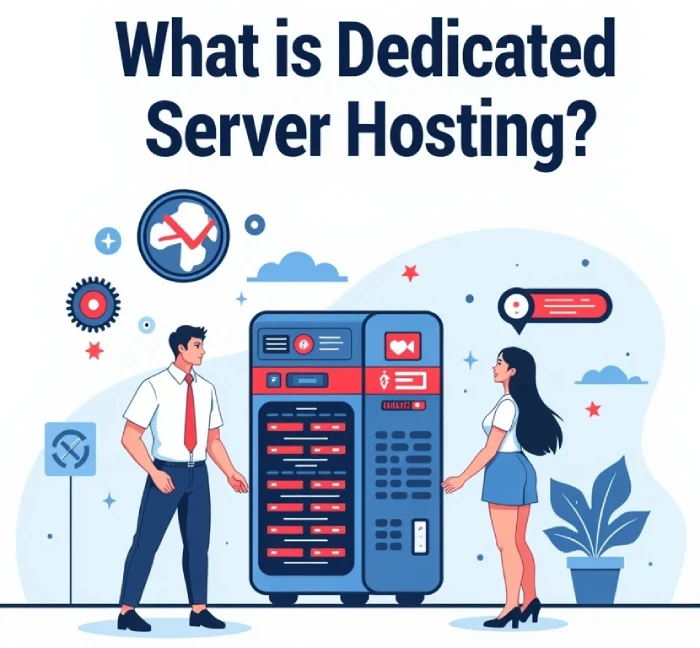
Dedicated server hosting is a type of Dedicated Server Hosting in usa where an entire physical server is allocated to a single client. In other words, you (or your business) have exclusive use of all the resources of that server – its processor, memory, storage, and bandwidth. This is very different from shared hosting, where many websites co-exist on the same machine and compete for resources, or even Virtual Private Servers (VPS), where one physical server is partitioned into multiple isolated virtual servers. With a dedicated server, you are the sole tenant of the hardware, which brings a host of advantages in performance, security, and control.
To illustrate, imagine your website as a high-performance race car. In a shared hosting scenario, you’re trying to race on a crowded track with many other cars (websites) — clearly not ideal for speed. A VPS is like having your own lane but still sharing the racetrack. A Dedicated Server Hosting in usa , however, gives you the entire track to yourself, allowing you to go full throttle. All the server’s horsepower (CPU), memory (RAM), and storage are dedicated to your applications. This translates into faster processing, quick load times, and the ability to handle high traffic volumes without the slowdowns that often plague shared environments. In fact, having exclusive access to server resources can significantly improve processing efficiency and support resource-intensive applications.
Another key aspect of dedicated hosting is the control it offers. Since you’re not sharing the server, you have the freedom to configure the hardware and software exactly as you need. You can choose your operating system (Windows or various Linux distributions), install custom software or specific versions of applications, and tweak settings for optimal performance. This level of customization is invaluable for businesses with unique requirements or those running specialized software. Essentially, a dedicated server lets you build a bespoke environment tailored precisely to your website or application’s needs.
It’s also worth noting that dedicated servers can be managed or unmanaged. With an unmanaged (or self-managed) server, the hosting provider gives you the machine and an internet connection, and it’s up to you to maintain the system – install updates, handle security, and fix any issues. This option is often chosen by companies with technical expertise on staff, as it offers maximum control. On the other hand, managed dedicated hosting means the provider takes on much of the system administration: they can handle updates, monitoring, security patches, backups, and are available to troubleshoot problems. Managed plans are attractive if you want the power of a dedicated server without the responsibility of day-to-day maintenance. Whether you choose managed or unmanaged, the core idea is the same: you get a server all to yourself.
In summary, Dedicated Server Hosting in usa is akin to having your own private house on the web, rather than renting an apartment in a high-rise full of other websites. It ensures that all the resources and space are yours, providing a foundation for top performance, robust security, and full control. Now, let’s delve into why these characteristics matter so much, and how they set dedicated servers apart from other hosting options.
red more: web hosting companies in usa
Dedicated Server Hosting in usa vs Other Hosting Options
To appreciate the value of a dedicated server, it helps to compare it with other common hosting options: shared hosting, VPS hosting, and cloud hosting. Each has its place in the web hosting ecosystem, but they differ in resource allocation, performance, cost, and ideal use cases.
- Shared Hosting: This is the entry-level hosting most beginners start with. In shared hosting, a single server (and its resources) is shared among dozens or even hundreds of websites. The appeal of shared hosting is its low cost and simplicity – the provider handles all maintenance, and you just upload your website. However, the downside is limited resources and performance. If one site on the server experiences a traffic spike or a security issue, it can slow down or affect all the others. You also have very little control over server settings. Shared hosting is like sharing a computer with many users – fine for lightweight needs, but not suitable for high-traffic or resource-intensive sites. Many U.S. businesses eventually outgrow the constraints of shared plans as their audience expands and demands increase.
- Virtual Private Server (VPS) Hosting: VPS is a step up from shared hosting. A VPS uses virtualization technology to split one physical server into several “virtual” servers. Each VPS has its own dedicated slice of the resources and acts like an independent server environment. This means you get more guaranteed resources and greater control (including root access to your virtual server) compared to basic shared hosting. VPS is often seen as a middle ground: it’s more powerful and customizable than shared hosting, but more affordable than a full dedicated server. However, since the physical hardware is still shared among multiple VPS users, peak performance is still limited. If another VPS on the same machine is consuming a lot of resources (or if the host oversold capacity), you might notice some impact. For growing sites, a VPS can handle moderate traffic and custom configurations, but once you need consistently high performance or very specific hardware setups, it may be time to move to a dedicated server.
- Cloud Hosting: Cloud hosting has gained immense popularity due to its flexibility. Instead of your site living on one machine, it’s spread across a cluster of servers (the “cloud”). This allows easy scaling – if your site needs more resources, the provider just allocates them from the cloud network. It also provides resilience; if one physical machine fails, your site can be instantly switched to another. Cloud hosting is excellent for applications that have variable workloads or need high availability. However, pure cloud environments often abstract away the hardware, meaning you might not get the absolute top performance of a single bare-metal server dedicated to you. For example, some latency-sensitive or extremely high-throughput applications might still perform better on a well-tuned dedicated server. Additionally, cloud pricing can scale up quickly as usage grows, whereas a dedicated server typically comes at a fixed monthly rate for a set amount of power. In practice, many companies use a mix – leveraging Dedicated Server Hosting in usa for core databases or performance-critical tasks, and cloud instances for elastic scaling or distributed workloads.
In summary, choosing between these options comes down to your specific needs:
- If you run a small website or blog with modest traffic, shared hosting might suffice.
- For a growing business or application that needs more control and can’t afford the unpredictability of shared resources, a VPS is an intermediate step.
- If you need massive scalability and high availability, cloud hosting is attractive.
- But if performance, security, and control are top priorities, and your traffic or workload is significant, dedicated server hosting is often the superior choice. It ensures consistent high performance since you’re not sharing resources at all, and it gives you the flexibility to configure the environment to exact specifications.
One more point to consider is cost: dedicated servers are typically more expensive than shared or VPS plans because you’re leasing an entire machine. However, they can be cost-effective in the long run for businesses that truly need their capabilities. The improved performance (leading to better user experience and potentially higher revenue), reduced downtime, and stronger security can provide an excellent return on investment. It’s a bit like hiring a private chauffeur instead of taking the bus – it costs more, but the level of service and reliability is on another level. Now, let’s examine in detail the benefits that make dedicated servers worth the investment.
Key Benefits of Dedicated Server Hosting in usa
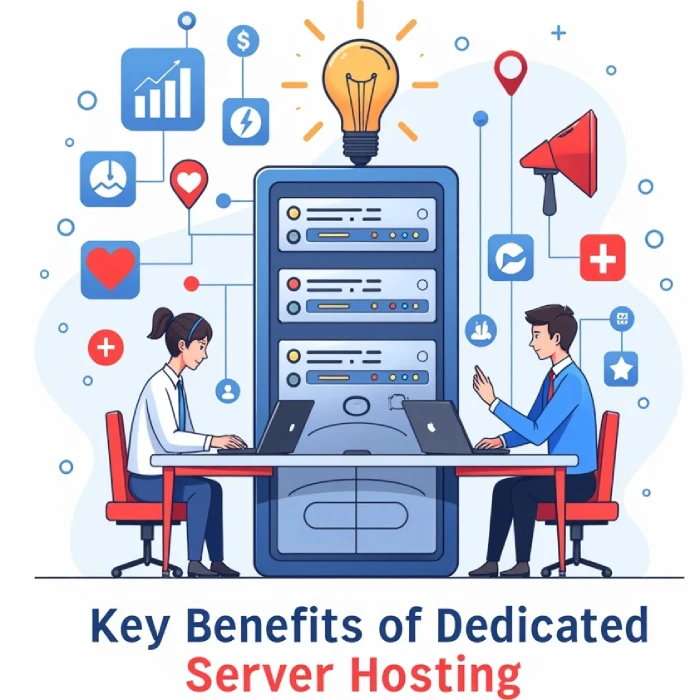
Opting for a dedicated server hosting solution, especially in a tech-forward market like the United States, unlocks a suite of benefits that can significantly enhance your online operations. Let’s break down the major advantages:
- Unparalleled Performance: With a dedicated server, your website or application enjoys exclusive access to all the server’s computing power. All the CPU processing cycles, RAM, and disk I/O are at your disposal 24/7. This translates to faster loading times and the ability to handle high traffic volumes without breaking a sweat. There’s no noisy neighbor to hog the CPU or bandwidth. For example, if you run an e-commerce site or a large SaaS application, a dedicated server ensures that even during peak user activity, response times remain snappy. Consistent speed is not just about user satisfaction – it can also impact your search engine rankings, as Google and other engines favor fast-loading sites.
- Reliability and Uptime: Because you’re not sharing resources, the performance of a dedicated server is stable and predictable. There’s also less risk of the server becoming overloaded or crashing due to someone else’s actions. Reputable hosting providers build in redundancy (like backup power supplies and network links) to keep dedicated servers running smoothly. In a dedicated environment, it’s easier to implement high-availability setups – for instance, using multiple servers in failover configurations across different data centers for redundancy. Many businesses choose U.S. dedicated servers because American data centers often boast excellent uptime records and resilient infrastructure (fuel generators, redundant fiber connections, etc.). The result is exceptional reliability; your site stays online and accessible, which protects your revenue and reputation.
- Enhanced Security: Security is a cornerstone of dedicated hosting. Since you are the only one using the server, attack surfaces are reduced – you don’t have to worry about a vulnerable neighbor site on the same machine causing a breach. You have the freedom to implement rigorous security measures tailored to your needs: advanced firewalls, intrusion detection systems, VPNs, custom encryption – whatever your security policy dictates. Dedicated servers are often chosen by companies that handle sensitive data (like financial records, personal customer information, or healthcare data) precisely because they provide an isolated environment. In the U.S., businesses in regulated industries (healthcare, finance, government contractors, etc.) appreciate the ability to configure servers to meet compliance standards like HIPAA or PCI-DSS. Moreover, top U.S. hosting providers include robust security features such as DDoS protection to guard against denial-of-service attacks, and they secure their data centers with physical measures (e.g. biometric access, 24/7 surveillance). All of this means a dedicated server can be locked down as tightly as required, giving you peace of mind that your critical applications and data are safe.
- Full Control and Customization: With a dedicated server, you’re essentially renting an entire computer that you can configure as you please. Need a specific operating system or a custom software stack? You got it. Want to tweak low-level settings for the database or install special library packages? No problem. This granular control is a huge benefit for advanced applications. For instance, if you’re running a machine learning application that requires particular GPU drivers or an analytics platform that needs a certain database tuning, a dedicated server lets you set that up. You can optimize the environment for your workloads without compromise. Many providers also offer KVM or IPMI access (remote console access), so you have the same control as if the machine were sitting next to you. Contrast this with shared or managed environments, where you’re often restricted to a standard configuration – on a dedicated box, if you want to reboot the server at 3 AM to install a patch, you can. This flexibility extends to hardware choices too: you can often select servers with the CPU model, amount of RAM, type of storage (SSD/HDD/NVMe) that best fit your needs. Some providers even allow custom hardware configurations or upgrades, like adding more drives or RAM as your application grows.
- Scalability: At first glance, scalability is often cited as an advantage of cloud hosting, but dedicated servers can scale in their own ways. Vertically, you can upgrade a dedicated server to more powerful specifications (more CPU cores, extra memory, higher network port speeds) if your needs grow. Many U.S. hosting companies offer a range of server configurations, so you might start with a certain setup and move to a stronger machine later with minimal downtime. Horizontally, you can also deploy multiple dedicated servers behind load balancers to distribute traffic, effectively creating your own mini-cloud tailor-made for your application. The key is that with planning, dedicated setups can handle growth just as well—especially when paired with techniques like clustering or container orchestration for your applications. The difference is that you, rather than an abstract cloud service, architect the scaling strategy, which some businesses prefer for cost predictability and performance consistency.
- Long-Term Cost Effectiveness: While dedicated servers involve higher upfront cost than shared or VPS hosting, they can be more cost-effective for large-scale operations. Think about a scenario where your site’s traffic has outgrown what a high-end VPS or cloud instance can comfortably handle. You might end up needing multiple cloud instances (which can become expensive) or dealing with performance bottlenecks. A single properly-configured dedicated server might handle that same load at a lower monthly cost than an equivalent cloud deployment, especially when factoring in data transfer (bandwidth) costs. Additionally, the stability and security of dedicated hosting can save money indirectly – for example, fewer outages mean less lost revenue, and a stronger security posture reduces the risk of expensive breaches. Over time, if you fully utilize a dedicated server’s capacity, you often get more bang for your buck compared to piecing out resources in other environments. Essentially, you’re paying a fixed rate for a high-end machine and you can push it to its limits.
In essence, a dedicated server is about owning the full toolbox. Instead of a limited set of tools in a shared environment, you have the entire workshop at your disposal – you decide how to use it. These benefits are amplified when we talk about dedicated servers in the United States, thanks to the exceptional infrastructure and environment the U.S. provides. To truly understand that, we need to discuss why server location plays an important role in hosting, and what makes the U.S. such an attractive location for dedicated servers.
Why Server Location Matters in Hosting
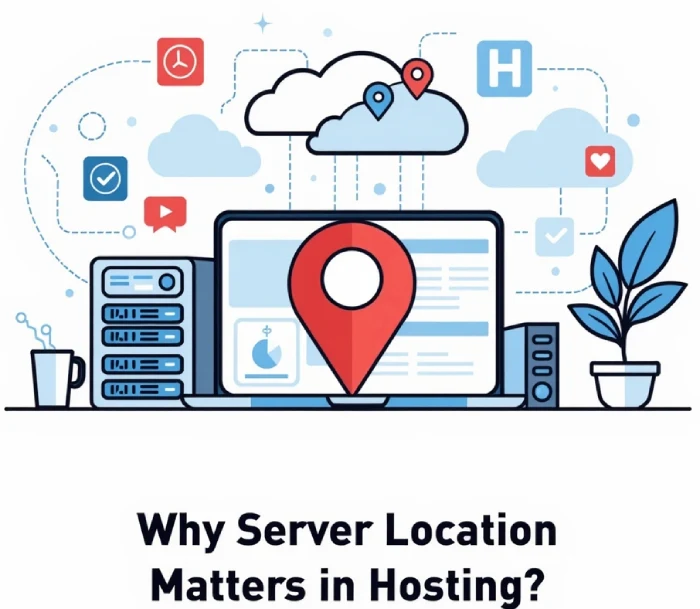
When it comes to web hosting, “location, location, location” isn’t just a mantra for real estate. The physical location of your server can have a significant impact on your website’s performance, your users’ experience, and even your site’s visibility in search engines for certain regions. Here are a few reasons why server location is so important:
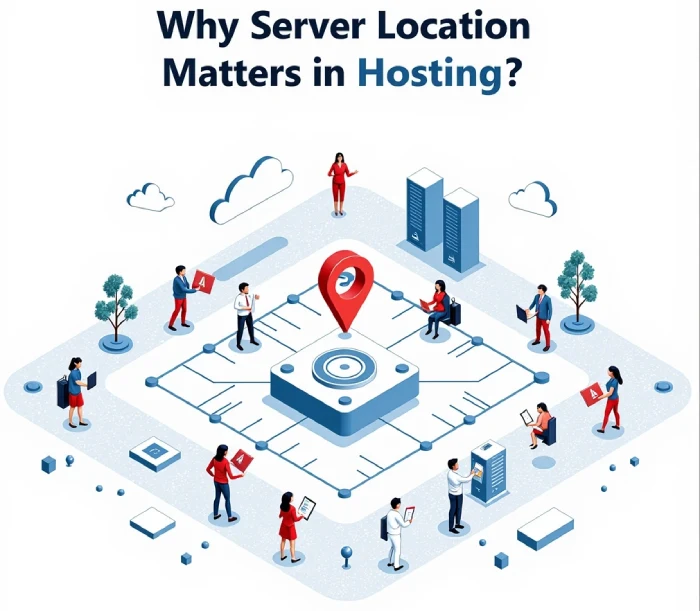
- Latency and Speed: Data on the internet doesn’t travel instantaneously – it obeys the laws of physics. The farther data has to travel between your server and the end-user, the longer each request will take. This delay is called latency. For example, if your customers are mostly in North America and your website is hosted on a server in Asia or Europe, every time someone in the U.S. clicks something, the request has to traverse the globe and back. That can introduce noticeable lag. Conversely, hosting your services closer to your users minimizes the distance data travels, resulting in faster response times. This is why, for an American audience, a server located in the United States will usually yield better loading speeds and a smoother experience than one located overseas. As a rule of thumb, if your primary user base is in a certain country or region, it’s wise to host your site in that vicinity for optimal speed.
- User Experience: The speed difference due to latency might only be fractions of a second for each request, but those add up. Studies have shown that users quickly grow impatient with slow websites. A delay as small as an extra 100-200 milliseconds (tenth of a second) can begin to degrade the user experience, especially for interactive applications. If you run an online game or a live trading platform, low latency is absolutely critical. But even for a content website or online store, faster is better to keep users engaged and happy. By choosing a server in the U.S. for U.S.-based users, you ensure that geography isn’t a hurdle for speed.
- Search Engine Optimization (SEO): Interestingly, server location can also play a role in SEO. Search engines like Google consider site speed as one factor in their ranking algorithms – faster sites often rank higher because they provide a better user experience. So a server located near your users (e.g., in the U.S. for U.S. visitors) that delivers content quickly can indirectly boost your SEO. Moreover, for local search results, geographic relevance can matter. If your business targets U.S. customers, having your website hosted in the U.S. might help signal to search engines that your site is relevant to that market. In fact, businesses targeting local U.S. audiences often see improved local search rankings by hosting on local servers, as it combines fast load times with location cues that algorithms take into account. It’s not the sole determinant of SEO, but it’s part of the mix that can give you an edge in local visibility.
- Data Sovereignty and Legal Compliance: Different countries have different laws governing data. Server location can determine what laws apply to the data on that server. For instance, European Union countries have strict privacy regulations (GDPR) that might influence non-EU companies to host European user data within Europe. Similarly, if you’re a U.S. company dealing with certain regulated data, you might be required (or find it simpler) to store that data on U.S. soil to comply with laws like HIPAA (for health information) or FISMA (for government-related data). By choosing a server in the United States, you ensure that your data is under U.S. jurisdiction and subject to U.S. data protection laws and industry regulations. For many American businesses, this is a comfort; they know what legal framework they’re operating under and can more easily ensure compliance. We’ll talk more specifically about U.S. regulations in the next section, but the key point is that location isn’t just a technical decision, but also a legal one for some industries.
- Reliability of Infrastructure: Server location often correlates with the reliability of power and internet infrastructure. Not all data centers are created equal. The U.S. is known for having a very robust internet backbone and reliable electricity supply in its major data center hubs. If you host a server in a region with unstable power grids or poor connectivity, your site could suffer outages or slowdowns unrelated to your hardware – just because of external infrastructure problems. By contrast, U.S. data centers, especially those in well-known locations like Northern Virginia (Ashburn), Silicon Valley, Dallas, Chicago, etc., are built with multiple layers of redundancy (backup power generators, redundant network paths, advanced cooling systems, and so on). This means the uptime and reliability of hosting in these locations are generally excellent. When you choose a U.S. dedicated server from a reputable data center, you’re also choosing a stable environment with 24/7 monitoring and support, which all contribute to keeping your site consistently online.
In summary, server location matters for speed, user satisfaction, SEO, compliance, and reliability. If your audience is global, you might even use a mix of server locations or a Content Delivery Network (CDN) to distribute content. But for many, placing a dedicated server in the United States provides an optimal balance of reaching North American users quickly while tapping into one of the best infrastructure ecosystems in the world. Next, let’s drill down into what specifically makes the United States such a powerhouse for dedicated server hosting and the distinct advantages of hosting on U.S. soil.
The United States as a Hosting Hub
The United States isn’t just one of many options for hosting – it’s often considered the premier hosting environment, and for good reason. Let’s look at why the U.S. stands out as a global hosting hub:
- Massive Data Center Presence: The U.S. is home to an enormous number of data centers, ranging from gigantic hyperscale facilities to specialized colocation centers. As of recent statistics, the United States has thousands of data centers, far more than any other single country. In fact, it accounts for a majority share of the world’s data center capacity. This concentration of infrastructure means that if you want a server in the U.S., you have a wealth of choices – from the East Coast to the West Coast, and everywhere in between. Key markets like Northern Virginia (sometimes called “Data Center Alley”), Dallas/Fort Worth, Chicago, Silicon Valley, Los Angeles, Seattle, Miami, and New York/New Jersey each host large clusters of data centers. These locations have grown because they offer strategic advantages (be it connectivity, power availability, or proximity to business centers). For someone looking to host in the U.S., this abundance means you can often find the perfect fit: the right location for your audience, a provider that meets your needs, and potentially competitive pricing due to the healthy competition among providers.
- Advanced Infrastructure and Technology: The American hosting scene is highly competitive, which drives providers to continually upgrade and adopt the latest technologies. Many U.S. data centers feature state-of-the-art hardware and network equipment. For example, it’s common to find servers with the latest-generation processors (like Intel Xeon or AMD EPYC chips), fast SSD or NVMe storage arrays, and high memory configurations. Network connectivity in top U.S. facilities is typically excellent – providers often connect to multiple Tier 1 bandwidth providers and Internet Exchanges, resulting in high-throughput and low-latency links. USA-based servers benefit from these high-quality network backbones and cutting-edge infrastructure, which translate to superior performance for your hosting. Additionally, data centers in the U.S. invest heavily in physical infrastructure: redundant power (with battery backups and diesel generators on standby), efficient cooling systems, and robust fire suppression. The aim is to ensure that servers run optimally and continuously. As a client, hosting in such an environment means your dedicated server is supported by some of the best tech available.
- Strong Connectivity and Global Reach: Because of its central role in the internet’s history, the U.S. has a vast and well-developed internet backbone. Major network exchange points in the U.S. connect North America with the rest of the world. For instance, networks interconnect in places like Ashburn (VA), New York, Chicago, Dallas, and San Jose, making the U.S. a crucial transit hub for international internet traffic. If your business is international but still wants to base out of one location, the U.S. is a logical choice because of its global connectivity. Transatlantic cables to Europe land on the U.S. East Coast, transpacific cables to Asia land on the West Coast, and there are extensive fiber networks throughout the continent. Hosting in the U.S. often yields reasonable access speeds even to Europe, South America, and parts of Asia/Africa because of this network centrality. While those regions might still be better served by a local server for maximum speed, a U.S. server is a good “central” node for a worldwide audience. The U.S. is also a leader in new networking technologies and high-bandwidth capabilities (like early adoption of 100 Gbps and beyond fiber links), which means your server’s connection is unlikely to be a bottleneck.
- Low Country Risk and Stable Environment: When you host in the United States, you benefit from the country’s overall stability – political, economic, and infrastructural. The U.S. has a low country-risk profile for businesses: there’s strong rule of law, stable governance, and a mature business environment. This might seem abstract, but it has tangible effects. For example, the risk of sudden government expropriation of data centers or random shutdowns due to political turmoil is exceedingly low. Contracts and service level agreements (SLAs) are enforceable under a reliable legal system. Additionally, the U.S. has a mature and competitive market for supporting services – such as many options for transit providers, a large pool of skilled IT professionals, and well-developed supply chains for server hardware. All of this reduces the risk of downtime or service issues. In short, the environment in which your server operates is highly stable and secure, which is vital for mission-critical hosting.
- Favorable Regulatory Environment for Business: The U.S. generally offers a business-friendly regulatory climate for data center operations and internet businesses. There aren’t heavy government-imposed restrictions on standard web content (aside from the obvious illegalities), and the free flow of data is largely unencumbered, which is appealing for many companies. Power costs in some U.S. regions are also reasonably low, and several states offer tax incentives or energy incentives to attract data center investments – benefits that often indirectly pass on to customers in the form of better pricing or improved facilities. Moreover, the U.S. has clear regulations when it comes to data handling in certain sectors (like healthcare or finance), and hosting providers often align with international standards. Many American hosting providers adhere to certifications such as ISO 27001 (information security management), SOC 2, and even GDPR compliance for dealing with European data. This means if you have compliance needs, you can likely find a U.S. host that meets them. We should acknowledge that the U.S. does not have a single unified data privacy law like GDPR; instead it has a mix of sector-specific laws (HIPAA, for health data; GLBA for financial; etc.) and state laws (like California’s CCPA for consumer data privacy). However, reputable U.S. data centers and hosts tend to implement strict security and privacy controls, and they often meet or exceed international standards for data protection. In fact, choosing a US-based dedicated server can give peace of mind that stringent security measures and best practices are in place to protect your data.
To sum up, the United States offers a fertile ground for hosting: plentiful top-tier facilities, cutting-edge tech, superb connectivity, stability, and a supportive business environment. These factors combined have made the U.S. the go-to destination for many organizations’ hosting needs. Now, let’s focus on the specific advantages you get when you choose a dedicated server located in the United States and how they might benefit your business or project.
Advantages of US-Based Dedicated Servers
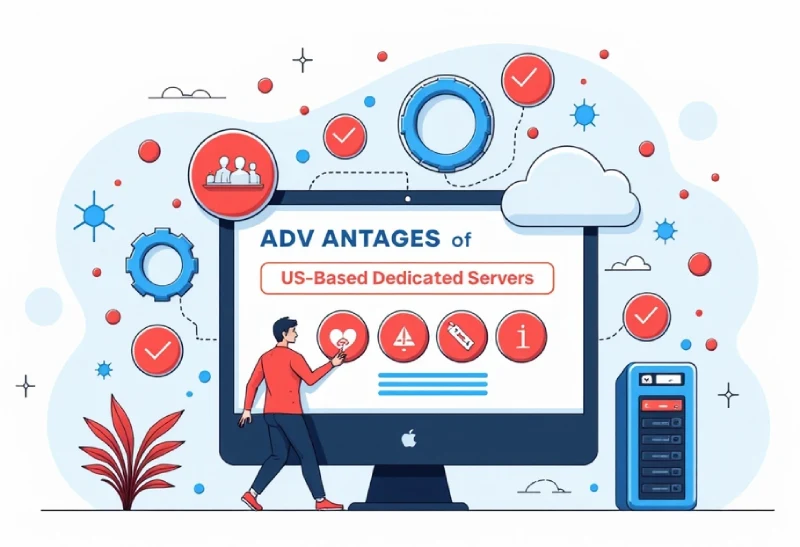
Now that we understand the general strengths of the U.S. as a hosting location, let’s highlight the concrete advantages of having your dedicated server in the United States:
- Reduced Latency for North American Users: If your target audience or user base is in North America (the U.S. and Canada), hosting your server in the U.S. means your content is geographically closer to them. As discussed earlier, this drastically reduces latency. Users will experience faster page loads and smoother interactions. For example, a visitor from New York accessing a site on a New York-based server will usually get data in just a few milliseconds. But even across the country, modern U.S. networks are very fast – a user in California accessing a server in Virginia might see only a tiny fraction of a second of added latency. The U.S.’s extensive fiber infrastructure ensures high-speed connections coast-to-coast. The bottom line is an American audience will get optimal performance from an American server, which can directly translate to better engagement and higher conversion rates (users who aren’t kept waiting are more likely to stick around and do business on your site).
- Improved Local SEO and Geographic Targeting: We touched on SEO earlier; hosting in the U.S. can be beneficial if you want to rank well for U.S. searches. Search engines can use the IP address of your server as one factor (among hundreds) in determining the relevance of your site to a region. A site physically hosted in the U.S. indicates that it’s intended for (or at least very accessible to) U.S. users. Additionally, fast load times for U.S. users (due to the reduced latency) can improve your site’s user metrics, which indirectly improves SEO. Local businesses in the United States often choose local dedicated servers to boost their local search presence. For instance, if you run an online store that primarily ships within the U.S., having your server in-country complements your local SEO strategy. It shows both users and search engines that you are “in the neighborhood,” so to speak.
- Compliance with U.S. Data Regulations: If your operations must adhere to American laws or industry regulations, keeping your data on U.S. soil is often a must. Industries such as healthcare (which must consider HIPAA regulations for patient data), finance (with regulations for protecting financial data), and government contracting (with rules about data handling and possibly requiring FISMA compliance) benefit from U.S.-based servers. By using a U.S. dedicated server, you ensure data remains under U.S. jurisdiction and protection. Moreover, U.S. hosting providers frequently undergo certifications and audits to demonstrate compliance with standards and regulations. Many data centers carry SOC 2 Type II certifications (showing they follow strict controls for security, availability, processing integrity, confidentiality, and privacy). Others might have FedRAMP authorizations (for government cloud services) or PCI-DSS compliance for handling credit card data. If you need to meet GDPR for EU customers, many U.S. providers can accommodate that too by enforcing proper data protection measures. The advantage here is that by selecting the right provider, you can meet a host of compliance requirements while benefiting from U.S. infrastructure. It simplifies audits and legal compliance because you know exactly where the data is and which laws apply. Also, if any legal issues arise, you can deal with them within the U.S. legal system, which is often preferable for U.S. companies.
- Customer Support in English and U.S. Business Hours: Another practical benefit of U.S.-based hosting companies is the support factor. U.S. hosting providers often offer customer support with native English-speaking staff, which can be crucial for clear communication. If you’ve ever tried to resolve a technical issue quickly, you know how important it is to convey details without language barriers. Additionally, support aligned with U.S. time zones can be very helpful. While good hosts provide 24/7 support, it’s useful when the bulk of their team is working during your business hours. You’re more likely to get immediate assistance in the middle of the U.S. workday or even off-hours, since many providers staff around the clock. The cultural familiarity (understanding the needs of U.S. businesses) can also streamline troubleshooting. For example, if your e-commerce site is running a big promotion on Cyber Monday, a U.S. host’s support team knows how critical uptime is during that period and will be on high alert. This kind of alignment in language and business culture can make the support experience smoother and issues get resolved faster.
- Diverse Choices and Competitive Pricing: Because the U.S. market has so many providers and data centers, customers benefit from competition. Whether you need a budget-friendly server or a high-end enterprise solution, you can find it in the U.S. The range of offerings is huge: from small providers offering cheap dedicated servers (perhaps older hardware but very affordable) to premium managed hosting services that come with all the bells and whistles. Competition tends to keep prices reasonable. In fact, hardware and bandwidth in the U.S. can be less expensive than in some other regions due to economies of scale and market competition. This means you might get a more powerful server for the same price compared to hosting it elsewhere. Additionally, many providers frequently run promotions or offer customizable plans. You can shop around and select a package that exactly meets your specs and budget. Whether you need unmetered bandwidth for streaming, or a GPU-accelerated server for machine learning, chances are a U.S. host provides it. The abundance of choices also extends to location within the country – you could pick East Coast vs West Coast depending on what’s closer to your user base, or even deploy multiple servers across regions for geographic redundancy.
- Access to Newest Innovations: The U.S. tech industry is often at the forefront of adopting new innovations. Cloud computing originated largely in the U.S., as have many advances in server technology. By hosting in the United States, you’re in a position to access new features and services early. For instance, if a data center starts offering servers with the latest CPU that just launched, it’s likely happening in a U.S. data center first. If a new networking technology (like improved DDOS mitigation systems or software-defined networking enhancements) is being rolled out, U.S. providers might pilot it. Some U.S. hosting companies also provide hybrid solutions (mixing cloud and dedicated, offering storage area networks, etc.) allowing you to craft sophisticated architectures. In essence, you’re plugged into a very dynamic and innovative ecosystem. This is particularly important if your business is tech-savvy and wants to leverage cutting-edge capabilities. You won’t be stuck with outdated options.
Bringing all these points together, a U.S.-based dedicated server offers speed, compliance, support, and choice – a combination that’s hard to beat. It’s like situating your online operations in a well-developed city with every amenity, as opposed to a remote outpost. However, getting the most out of a dedicated server in the U.S. also means choosing the right provider and plan. In the next section, we’ll discuss how to go about selecting a U.S. dedicated server hosting service that aligns with your goals, ensuring you maximize all the benefits we’ve covered.
Use Cases: Who Needs a Dedicated Server Hosting in usa?
Dedicated servers are a powerful solution, but they are not necessary for everyone. Let’s talk about the types of individuals and businesses that benefit the most from dedicated server hosting in usa, and why the U.S. location adds value for them:
- High-Traffic Websites and E-Commerce Platforms
If you run a popular website, say a news portal or a high-traffic blog, or especially an e-commerce store with thousands of daily visitors, a dedicated server is often the right choice. These sites need to handle large numbers of simultaneous users, and potentially heavy database operations (like many product searches or transactions occurring at once). A dedicated server in the U.S. ensures that an online store targeting U.S. customers can handle peak loads (like holiday shopping surges) with ease. During something like a Black Friday sale, you don’t want your site to slow down or crash – a dedicated server provides the robust backend needed to keep things running smoothly under stress. Additionally, e-commerce platforms deal with sensitive customer data (personal information, credit card details), and a Dedicated Server Hosting in usa environment offers the security needed to protect that data (you can implement strong encryption, firewalls, and be PCI compliant). Hosting in the U.S. places your store close to your American customer base, which helps with quick page loads – an important factor in reducing cart abandonment and keeping shoppers happy. It also helps with trust; U.S. customers often feel more comfortable knowing a site is hosted domestically, perceiving it as a local business presence. - Enterprises and SaaS Providers
Larger companies, or those providing software-as-a-service (SaaS), often have complex needs. They might run custom enterprise applications, big data analytics, or serve thousands of client organizations through their software platform. These scenarios demand reliability, performance, and possibly customization that only dedicated servers can fully provide. Enterprises might also have strict compliance requirements or internal security policies that necessitate isolated hardware. For example, a healthcare software provider serving U.S. hospitals may require that all its servers (hosting patient data and applications) are within the U.S. and meet HIPAA standards. A U.S. dedicated server infrastructure is ideal here. It provides the horsepower for heavy processing (imagine an AI service doing real-time data analysis, which could max out CPUs or GPUs) and the consistency needed for enterprise-grade uptime (like SLAs promising 99.99% availability). Startups that are scaling quickly – especially tech startups – also often move to dedicated servers when their user base outgrows what virtualized environments can handle. The key is any organization for whom the website or application is core to the business (and directly tied to revenue or service delivery) should consider dedicated hosting for maximum control and assurance. If their users or clients are in the U.S. or they simply want the best infrastructure, placing those servers in U.S. data centers makes a lot of sense. - Media Streaming and Content Platforms
If you’re delivering rich media – be it a video streaming service, a music streaming platform, or even a high-traffic image gallery – you need significant bandwidth and storage, not to mention strong, lag-free throughput. Dedicated servers, possibly with unmetered bandwidth options, are a common choice for these use cases. For example, an independent video streaming site targeting U.S. viewers might host its library on one or several U.S. Dedicated Server Hosting in usa to guarantee smooth streaming with minimal buffering. By being in the U.S., you ensure minimal latency for the majority of your viewers (assuming a large portion are U.S.-based), which is crucial for streaming quality. Content platforms also often employ CDNs (Content Delivery Networks), but those CDNs themselves pull content from origin servers – and having your origin in the U.S. can be beneficial if your largest audience segment is U.S. (since initial upload and updates to the CDN will be faster). Moreover, media platforms might run into DMCA (Digital Millennium Copyright Act) issues or other content regulations; hosting in the U.S. means you are clearly under U.S. law which can be navigated properly if you need to remove infringing content or such. In short, for media, the combination of a beefy dedicated server (to handle the data load) and U.S. location (to optimize distribution) is a strong match. - Online Gaming Servers
Whether it’s an MMO (Massively Multiplayer Online) game, a Minecraft server community, or any interactive gaming service, low latency and reliable performance are critical. Gamers won’t tolerate lag – it literally ruins the experience. If your player base is in North America, you’ll want your game servers in the U.S. This could mean one on each coast to serve different halves of the country, or central locations like Dallas that can somewhat evenly serve both coasts. Dedicated servers are common for gaming because games are resource-intensive (they maintain real-time state of the game world, process many player actions per second, etc.). Plus, hosting game servers on shared platforms could be disastrous; one misbehaving neighbor could lag everyone. So a dedicated machine ensures the game runs at full speed all the time. Additionally, game servers often require custom configurations or proprietary server software – the flexibility of a dedicated server is necessary. The U.S. has a huge gaming population, so hosting in the U.S. is about being where the players are for lowest ping times. - Companies Needing Data Sovereignty (U.S. Government or Contractors)
Some organizations must, by policy or law, keep data within U.S. borders. A good example is a government contractor working on a U.S. federal project. They might have to ensure that all project data is stored on servers physically in the U.S. and possibly even in specific certified facilities. Similarly, U.S. government agencies themselves often use dedicated hosting (or private cloud on dedicated hardware) for certain applications, and those must reside in U.S. data centers. The use case here is straightforward: if your data or application must be U.S.-located for legal reasons, a dedicated server in a U.S. facility is the answer. Educational institutions and research organizations sometimes fall in this category too, particularly if research data is sensitive or export-controlled. By keeping everything in the States, they sidestep concerns about foreign data access and align with any federal data guidelines. - Individuals or Businesses Requiring Custom Environments
Not all use cases are about scale; some are about specificity. There are developers, researchers, or small businesses who need very particular environments. For example, a scientific research project might need an uncommon operating system kernel or a particular hardware setup with a lot of GPU power for computations. A blockchain company might want a server with a very high-performance CPU to handle cryptographic tasks or run nodes for their network. These niche requirements often rule out typical shared or cloud solutions (which are more generic). A Dedicated Server Hosting in usa, being essentially a blank slate, can be the solution. If such users are in the U.S. or serving U.S. interests, they’ll often host the server in the U.S. simply due to convenience (closer support, better bandwidth for themselves to access it) and any reasons mentioned prior (compliance, etc.). The U.S. hosting market’s breadth means even niche needs can sometimes be met by providers offering specialized hardware or custom quotes.
In essence, any scenario that demands high performance, strict security, and reliable service is a candidate for dedicated hosting – and if the users or requirements tie into the U.S., hosting it in the U.S. leverages the country’s superior infrastructure and local proximity. Many businesses start small on shared or cloud platforms and eventually graduate to one or multiple dedicated servers as they scale up. It’s at that point they realize the importance of a stable foundation – and the U.S. provides exactly that for the use cases above.
How to Choose a Dedicated Server Hosting in usa
Deciding that you need a dedicated server in the United States is step one. Step two is choosing the right hosting provider and plan from the myriad of options available. This part of the guide offers an educational overview of what to consider when selecting your U.S. Dedicated Server Hosting in usa solution, so you can make an informed decision that suits your needs (and gets you the most bang for your buck).
- Define Your Performance Requirements
Start by assessing what resources your project actually needs. How much traffic do you anticipate, and how many concurrent users? What kind of application are you running – is it CPU-intensive, memory-hungry, or heavy on disk I/O? For example, serving high-resolution images or videos will need fast disk read speeds (SSD storage is important), while running analytics or AI models might demand powerful CPUs or even GPUs. Knowing this helps determine the specs of the server you require: number of CPU cores (and their speed), amount of RAM, storage type and capacity, and network bandwidth. If you expect to handle millions of users or very large workloads, you might need a top-tier machine (or multiple machines). On the other hand, if your needs are modest but you still want the reliability of dedicated hardware, you could choose a lower-end dedicated server that’s more affordable. The good news is U.S. providers offer everything from entry-level single-processor servers to multi-processor beasts with hundreds of gigabytes of RAM.
- Consider Potential Downtime and Uptime Guarantees
Every minute your website is down could mean lost revenue or users, so reliability is critical. Look at the uptime guarantees offered by hosts – many promise 99.9% or even 99.99% uptime. It’s also important to understand how they ensure that uptime. Does the data center have redundant power (UPS, generators) and cooling? Do they have multiple network carriers (so if one backbone fails, others keep you connected)? Some providers publish stats or details about their infrastructure reliability. Additionally, check if the host offers Service Level Agreements (SLAs) that provide compensation or credits if they fail to meet the uptime levels promised. While reading fine print isn’t fun, it’s worthwhile; a solid SLA is a sign of a provider that stands behind their service. Given you’re considering U.S. hosting, also think about where in the U.S. the data center is. If you’re particularly concerned about natural disasters, you might avoid, say, an area known for hurricanes or earthquakes. However, most major data center regions in the U.S. are chosen for their relative safety and have mitigation measures in place (e.g., facilities in California are built to seismic standards, east coast facilities have robust flood defenses, etc.). - Bandwidth and Network Quality
Bandwidth refers to how much data can be transferred to/from your server, usually measured in terabytes per month or given as “unmetered” at a certain Mbps/Gbps port speed. If you expect to serve a lot of rich content or have users downloading/uploading files, look for plans with high bandwidth limits or unmetered bandwidth. Some hosts offer truly unmetered usage on a gigabit port, meaning you can use as much as you need (which is great for streaming or download services). Others might offer, say, 10TB or 20TB per month, which might be fine for moderate usage. Beyond the raw bandwidth, the network quality is crucial. This includes the number of peering points and backbone providers the host has, the typical latency to key locations, and the network’s redundancy. Often, hosts will allow you to test their network – they provide test IP addresses or files so you can ping or download to gauge speed. Because you’re going for a U.S. server, test how it connects from your location and from other parts of the country. If your users are nationwide, you want a centrally located server or a provider with a fast backbone. Additionally, check if the provider offers DDoS protection (some include basic DDoS mitigation up to a certain Gbps attack size, which can be important to fend off malicious traffic surges). - Data Center Locations and Expansion Needs
As mentioned, the U.S. has multiple data center hubs. Depending on where your users are, you might prefer a specific location (e.g., East Coast like New York/Virginia for East Coast users, West Coast like Los Angeles/San Jose for West users, or somewhere like Dallas/Chicago as a middle ground). Some hosting companies have only one data center, others have several across the country. If low latency to a particular region is critical, choose a provider with a data center in that region. Also consider future expansion: maybe today you need one server, but next year you might need a cluster or an additional server in a second location for redundancy. Does the provider offer easy ways to add more servers? Can they connect multiple servers with private networking if needed (for free or a small charge)? If you think you’ll need multiple locations, consider a provider that has a presence in both, say, New York and Los Angeles, so you can keep things under one company as you expand while reaching both coasts efficiently. - Managed vs Unmanaged and Support Quality
We talked earlier about managed vs unmanaged Dedicated Server Hosting in usa. Here you must assess your own (or your team’s) capability and desire to manage the server. If you have a skilled IT team or you are comfortable being the server admin, an unmanaged server is usually cheaper and gives you full control. But if not, look at managed dedicated server plans. Managed plans will cost more, but they can be worth it if you need help with tasks like setting up the software, migrating from another host, continuous security monitoring, regular updates, etc. When considering a provider, research their support reputation. Do they have 24/7 support? Is it via phone, chat, or just email/tickets? How fast is their response time? You can often find reviews of hosting providers that mention support experiences. U.S. based providers typically have support during U.S. hours at the very least, and many have around-the-clock teams. Given the formal tone of this content, it’s worth noting: pick a provider known for professional and responsive support – this can save you a lot of stress. An example red flag is if a provider only offers support during business hours and you’re running a 24/7 site – that likely won’t be sufficient. - Hardware Quality and Upgrade Options
Not all servers are equal. Some hosts might offer very cheap dedicated servers but on older hardware (maybe CPUs from 5-6 years ago, spinning hard drives instead of SSDs, etc.). There’s nothing inherently wrong with older gear, it might still serve your needs, but you should know what you’re getting. Check the hardware specifications carefully: the exact CPU model (so you can compare benchmarks if needed), type of storage (SSD vs HDD), RAID setup if any (RAID 1 or 5/6 for redundancy if you care about disk fault tolerance), and whether components like power supplies are redundant. If you are running critical workloads, you might want ECC memory (error-correcting RAM) which is standard in server-grade machines, to avoid memory errors. Many top U.S. providers use enterprise-grade hardware (from Dell, HP, Supermicro, etc.), which is designed for 24/7 operation. Also look at what happens if you need more power: can you upgrade the server (add more RAM or drives) later? Some providers allow easy upgrades; others might require a full migration to a new server. It’s better if the host offers flexibility, like you start with 16GB RAM and later upgrade to 32GB by just paying the difference and scheduling a maintenance window. Similarly, check if they provide options for backup storage or managed backup services, if that’s important to you. - Security and Additional Services
Security is multifaceted. On a dedicated server, you will have to handle software security (firewall configuration, OS updates, etc.) unless it’s managed. But the host should at least provide a secure environment and tools. Features to look for: DDoS protection (as mentioned), ability to add a hardware firewall or VPN if needed, two-factor authentication for the control panel, and physical security of the data center (most U.S. data centers are very secure with guards, CCTV, etc., which is a given). Some hosts might offer extras like vulnerability scanning, malware protection, or integration with cloud services for backups. Consider if you need any of those. For example, if you are not going to manage the server closely, a managed firewall service could be a good add-on. Another thing is IP addresses – by default you get one or two IP addresses, but you might need more for various applications (say, you want separate IPs for different sites or applications for SSL or organizational reasons). Check the cost and availability of additional IPs and that the host can justify them (due to ARIN rules, IPs are given if you have a technical need). - Pricing and Contract Terms
Finally, compare the pricing structure. Some providers offer monthly terms, others give discounts if you pay annually. Ensure there are no hidden fees – sometimes there could be setup fees (though many waive these nowadays) or fees for things like remote hands (physical work on the server by their techs) if you ever need that. Read the contract for things like early termination (are you locked in for a certain period?). Many hosts are actually quite flexible now with month-to-month contracts, which is great to avoid being locked in if service is unsatisfactory. However, committing longer-term can yield better rates. Also, look at what’s included: for instance, software licenses (if you need a Windows Server license or a control panel like cPanel, those often cost extra). If you’re comparing multiple offers, break down the cost vs specs vs support level. A slightly more expensive server with superb support and a better network might be more valuable than a rock-bottom price server that could give you headaches. Value for money is the goal – the right balance of cost, performance, and service.
To illustrate, consider you found a host offering an attractive plan in a Los Angeles data center and another in a Dallas data center. If your users are mostly on the west coast, the LA one might be better for latency. But maybe the Dallas host has a better network blend (multiple Tier 1 providers) and includes DDoS protection, whereas the LA one doesn’t. Weigh those differences. Also factor in support: if the Dallas provider has many positive reviews about helping customers quickly, that’s a big plus. It’s these kinds of nuances that should influence your choice beyond just “who’s the cheapest for X specs”.
In conclusion for this section, do your homework: evaluate your needs, examine the offerings critically, and choose a U.S. dedicated hosting provider that checks all the boxes for you. The effort spent upfront to pick the right host can save you countless hours (and dollars) later by providing a smooth, reliable hosting experience.
Conclusion
Dedicated server hosting in the United States combines the raw power of single-tenant hardware with the unparalleled infrastructure of a country that leads the world in data center technology. We began this exploration by understanding what dedicated hosting is – essentially having an entire server devoted to your needs – and contrasted it with other hosting options. The benefits quickly became clear: top-tier performance, unwavering reliability, enhanced security, and complete control. These are the traits that make dedicated servers the backbone of serious online endeavors, from bustling e-commerce sites to enterprise software platforms.
Location turned out to be a recurring theme. We saw that where your server lives matters for latency, user experience, and even search rankings. The United States, hosting a significant share of the globe’s internet infrastructure, emerged as an optimal locale for reaching North American audiences swiftly and reliably. The U.S. isn’t just about serving the local market either – its superb connectivity extends your reach globally, while still offering the perks of a stable and secure environment. For many organizations, hosting in the U.S. also simplifies compliance with data regulations and provides peace of mind that their services are running on world-class infrastructure.
We drilled down into the specific advantages of U.S.-based Dedicated Server Hosting in usa: from reduced latency and local SEO benefits, to access to English-speaking support and a competitive marketplace of providers. Concrete use cases illustrated who stands to gain the most – if you recognized your project in any of those scenarios (be it a high-traffic site, a streaming platform, a gaming server, etc.), it’s a strong signal that a U.S. dedicated server could be your ideal solution. The key is matching the technology to your needs: not everyone needs a dedicated server, but if you do, nothing else will quite measure up.
Finally, we navigated the process of choosing a hosting provider, which is arguably as important as the decision to get a dedicated server itself. The takeaway there is to be methodical and thoughtful: assess your technical requirements, find a reputable U.S. host that meets those needs, and don’t compromise on the support and features that matter most to you. Whether it’s ensuring the data center is in the right location, verifying the network quality, or making sure the provider has solid security practices – each factor plays into the long-term success of your hosting.
To wrap up, opting for Dedicated Server Hosting in usa is about empowering your online presence with a potent mix of performance and reliability, all anchored in a first-class infrastructure environment. The content you serve, the application you run, or the services you provide can reach users faster and more securely when backed by the right hardware in the right place. It’s like planting your flag in the most fertile soil of the internet – you give your digital operations the best chance to flourish. As you implement the insights from this guide, you’ll be well on your way to delivering an exceptional experience to your users, all the while knowing that a sturdy U.S.-based Dedicated Server Hosting in usa is working tirelessly behind the scenes to make it possible.

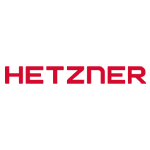


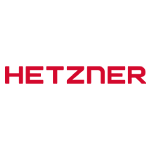


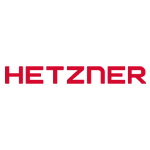


Leave a Reply